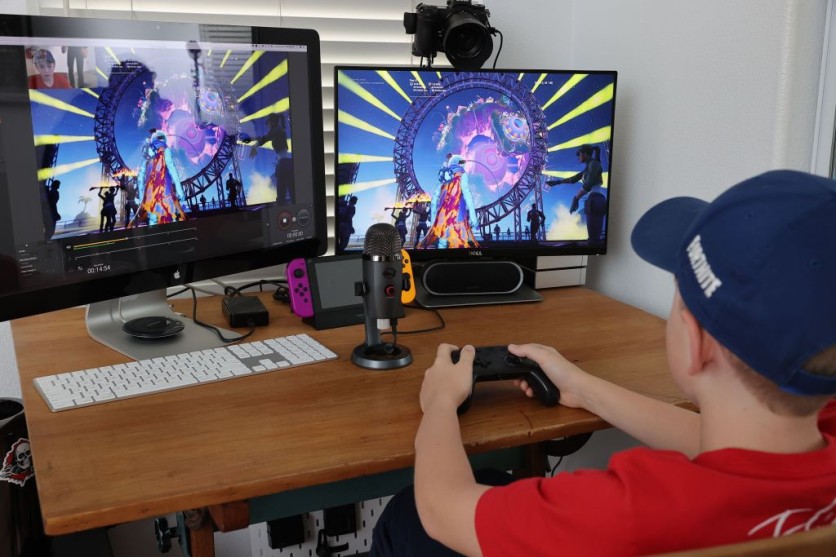"Fortnite" players under the young age groups were seen to be friendlier and more positive in behavior despite the violent gameplay of the battle royale. The study focused on the kids who spend their time on the famed online game and observed their conduct.

Critics reiterated the addiction that roots in playing online video games. Even the World Health Organization (WHO) formally confirmed that gaming disorder is an actual mental health problem.
However, some health experts said that "Fortnite" does not have a particularly addictive mechanism.
The Manchester Evening News further said that the gameplay is easy to grasp even for young minds. Also, it does not eat up a significant amount of time per match, and the vast modes and maps provide a new experience every time.
All of which is what makes the battle royale highly popular to gamers.
The traction of the game is now seeing parents paying skilled players to coach their kids to be good at "Fortnite" as well. Has the practice of enrolling kids in ballet or piano lessons become obsolete?
'Fortnite' Study
Addiction issues aside, a "Fornite" focused study dug deeper and has shown that kids playing the game are better in conduct.
Although there are violent tendencies in the gameplay, gore has been set aside. And additionally, the name of the game is cooperation. Moreover, the researchers looked into the link of prosocial behavior, such as friendliness to the violent game.
A total of 845 kids in grade school played both pinball and "Fornite" during the study. Additionally, each participant was given a consolation of $150 by simply taking part in the research.
Read also: 'Fortnite' Launches New Bella Poarch Emote: How to Get it? - Season 7 Reveals Alien Weapons
Findings: Friendliness and Positive Behavior
It turns out that "Fornite" players in a team are more generous, particularly in donating money and time, than their pinball counterparts, as per SlashGear. It is to note that the latter is a game that does not use violence in its overall gameplay. So, the cooperative nature of the game still wins out in instilling friendliness.
More precisely, the study allowed both "Fortnite" and pinball players to extend a helping hand to charities or the researchers. However, the latter showed a lack of cooperation. The battle royale players, on the other hand, were more willing to be of assistance.
And even though "Fortnite" players choose the solo queue, they are still more prosocial than the pinball gamers.
The study also concluded that violent and cooperative games, in general, are linked to satisfaction in psychological needs. Essentially, it propels empathetic behavior among children under ages nine to 12.
Therefore, the result of the study proved that violent video games do not instantly force their players to be antisocial. Perhaps, the teamwork factor helps to counter the expected negative effects.
This article is owned by Tech Times
Written by Teejay Boris

![Apple Watch Series 10 [GPS 42mm]](https://d.techtimes.com/en/full/453899/apple-watch-series-10-gps-42mm.jpg?w=184&h=103&f=9fb3c2ea2db928c663d1d2eadbcb3e52)


